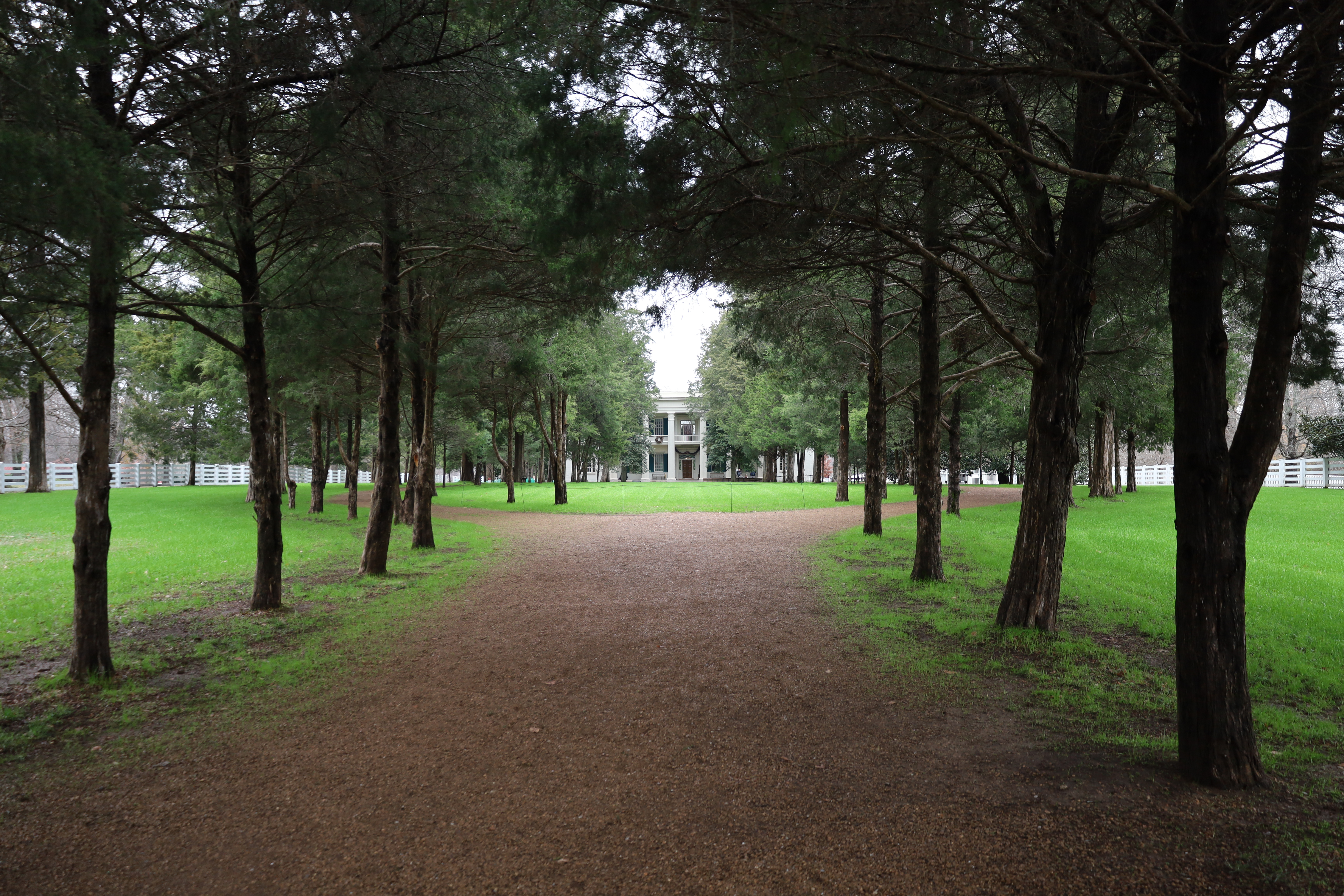Slavery
How a Leading Black Historian Uncovered Her Own Family's Painful Past—and Why Her Ancestors' Stories Give Her Hope
Martha S. Jones' new memoir draws on genealogical research and memories shared by relatives
From the Antebellum South to the Civil Rights Movement, Black American Women Have Long Told Their Stories Through Quilts
In a new exhibition at the Smithsonian American Art Museum’s Renwick Gallery, over 30 works showcase the significance of this quilting tradition
Born Enslaved, This Black Millionaire Attempted to Colonize Mexico and Aspired to Be the Emperor of Ethiopia
William Henry Ellis masqueraded as a Mexican businessman, but he never shied away from his Black roots
After Confederate Forces Captured Their Children, These Black Mothers Fought to Reunite Their Families
During the Civil War, Confederates targeted free Black people in the North, kidnapping them to sell into slavery. After the conflict ended, two women sought help from high places to track down their lost loved ones
The Vast Geographic Scope of Slavery Is Hard to Fathom. One Groundbreaking Exhibition Shows Its True Scale Around the Globe
At the National Museum of African American History and Culture, "In Slavery's Wake" tells the international history of slavery and Black freedom
Why Faneuil Hall Is the Perfect Metaphor for the American Revolution's Complicated Definition of Liberty
How a lively market on Boston Harbor became part of many defining moments of the Colonial and Revolutionary eras
The Roots of U.S. Work Culture—and Why the American Dream Is So Difficult to Achieve Today
A new book examines the evolution of the American workplace, interrogating the idea that hard work is enough to ensure success
Solomon Northup's 'Twelve Years a Slave' Came to an End as He Regained His Long-Awaited Freedom on This Day in 1853
Northup’s memoir told the story of his kidnapping and years of enslavement in Louisiana. The book became a national best seller and inspired an Oscar-winning film
The Remarkable Life of One of Boston's Most Fervent and Daring Abolitionists
Harriet Bell Hayden is believed to have helped hundreds of people fleeing slavery from her Beacon Hill residence
Inside the Struggle to Preserve Georgia's Butler Island, Home to a Notorious Plantation
Descendants of people enslaved at the site are grappling with its complicated history while also honoring the region's rich culture
Archaeologists Discover Lost Burial Site of Enslaved People on President Andrew Jackson's Tennessee Plantation
An estimated 28 probable graves were identified at the seventh American president's former property, called the Hermitage
These Black Soldiers Fought for the British During the American Revolution in Exchange for Freedom From Slavery
The Carolina Corps achieved emancipation through military service, paving the way for future fighters in the British Empire to do the same
How 'Blackbirders' Forced Tens of Thousands of Pacific Islanders Into Slavery After the Civil War
The decline of the American South's cotton and sugar industries paved the way for plantations in British-controlled Fiji and Australia, where victims of "blackbirding" endured horrific working conditions
The Shocking Moment When a Group of Confederate Spies Plotted—and Failed—to Burn Down New York City
Southern operatives tried to light New York businesses on fire and bring the Northern city to its knees on this date in 1864
The Real History Behind Ridley Scott's 'Gladiator II' and Life as a Fighter in the Ancient Roman Arena
The "Gladiator" sequel centers on Lucius Verus, the secret son of Russell Crowe's character from the 2000 film. Both men achieve fame as enslaved fighters driven by their desire for revenge
Meet the Woman Who Was the First Female Senator and the Last Senator to Be an Enslaver. She Served for Just One Day
Rebecca Felton was sworn in on this day, and despite her short time in power, her legacy reveals deep contradictions in American history
The Hidden History of Bermuda Is Reshaping the Way We Think About Colonial America
New archaeological finds on the islands have revealed secrets about one of Britain’s first settlements in the Americas—and the surprising ways it changed the New World
Harriet Tubman Just Became a One-Star General, More Than 150 Years After Serving With the Union Army
The celebrated Underground Railroad conductor received posthumous recognition for her service as a spy, scout, nurse and cook during the Civil War
The Surprising Artwork That Inspired Netflix's 'The Piano Lesson,' a New Movie Based on August Wilson's Award-Winning Play
A Romare Bearden print served as a starting point for the American playwright's 1987 drama, which follows a Black family's struggle to decide the fate of an ancestral heirloom
The Nation's Oldest Schoolhouse for Black Children Will Open to the Public Next Year
Work is underway to restore the Bray School, which will be dedicated in a ceremony on Friday. The historic building in Colonial Williamsburg will open its doors in the spring of 2025
Page 1 of 23
:focal(700x527:701x528)/https://tf-cmsv2-smithsonianmag-media.s3.amazonaws.com/filer_public/4e/3f/4e3f1dee-6971-4f9a-9305-de41197ab84f/martha_s_jones.png)
:focal(2762x2078:2763x2079)/https://tf-cmsv2-smithsonianmag-media.s3.amazonaws.com/filer_public/92/71/9271463a-8e61-41ea-9405-689531cf7951/gettyimages-1574529428.jpg)
:focal(700x527:701x528)/https://tf-cmsv2-smithsonianmag-media.s3.amazonaws.com/filer_public/6a/11/6a1164f9-9322-4b66-8ef6-5642afd53d31/ellis.jpg)
:focal(700x527:701x528)/https://tf-cmsv2-smithsonianmag-media.s3.amazonaws.com/filer_public/2e/1c/2e1c69d2-3af6-4c35-8e4d-05f63f139d3f/rebel-officers.jpg)
:focal(1500x1014:1501x1015)/https://tf-cmsv2-smithsonianmag-media.s3.amazonaws.com/filer_public/98/fc/98fc80d7-b5ee-41e6-a88a-b79021080735/ex_sw03_20241209_002.jpg)
:focal(1200x811:1201x812)/https://tf-cmsv2-smithsonianmag-media.s3.amazonaws.com/filer_public/89/e4/89e4ddff-f405-40eb-aae9-89ce5c326c8d/homepage.jpg)
:focal(1100x620:1101x621)/https://tf-cmsv2-smithsonianmag-media.s3.amazonaws.com/filer_public/7a/b6/7ab6f5e0-bf30-4b63-b1c7-a8b9cf32e2ce/mcd.jpg)
:focal(700x527:701x528)/https://tf-cmsv2-smithsonianmag-media.s3.amazonaws.com/filer_public/ca/13/ca13f21d-abea-45c6-88c8-989eba73f315/northup.jpg)
:focal(1050x750:1051x751)/https://tf-cmsv2-smithsonianmag-media.s3.amazonaws.com/filer_public/6a/ac/6aacf081-6ca9-4e12-9fbf-6438eba6b2ee/untitled-1.jpg)
:focal(1800x1354:1801x1355)/https://tf-cmsv2-smithsonianmag-media.s3.amazonaws.com/filer_public/d1/c2/d1c263ae-c8f5-4d7e-a0d6-707eeae408e4/opener_-_butler_island_planation__3.jpg)

:focal(700x527:701x528)/https://tf-cmsv2-smithsonianmag-media.s3.amazonaws.com/filer_public/3f/d8/3fd862a7-1728-4331-9e62-a6989298aacf/west-india.jpg)
:focal(700x527:701x528)/https://tf-cmsv2-smithsonianmag-media.s3.amazonaws.com/filer_public/70/21/70215a7c-71b9-4906-a41a-21940a707c09/blackbird.jpg)
:focal(965x763:966x764)/https://tf-cmsv2-smithsonianmag-media.s3.amazonaws.com/filer_public/8d/8f/8d8f7f86-bdc6-4d1d-ba77-5780ade3ff0c/civil_war_through_the_camera.jpg)
:focal(700x527:701x528)/https://tf-cmsv2-smithsonianmag-media.s3.amazonaws.com/filer_public/a3/1f/a31fba36-9848-48b0-8dde-7802925bb927/gladiator.jpg)
:focal(1325x1219:1326x1220)/https://tf-cmsv2-smithsonianmag-media.s3.amazonaws.com/filer_public/11/c7/11c70325-372c-4644-9049-121761fd6d59/reb_felton-geo_senate.jpg)
:focal(1687x1269:1688x1270)/https://tf-cmsv2-smithsonianmag-media.s3.amazonaws.com/filer_public/c0/96/c0962bce-ec7f-47dd-a65e-1f6db1b69a49/opener_-dec2024_a12_bermuda.jpg)
:focal(1000x752:1001x753)/https://tf-cmsv2-smithsonianmag-media.s3.amazonaws.com/filer_public/6e/8b/6e8ba8cd-5b5c-4433-91f2-9be5d822da77/tubman.jpg)
:focal(700x527:701x528)/https://tf-cmsv2-smithsonianmag-media.s3.amazonaws.com/filer_public/8b/e6/8be6b26c-edaa-4d61-ac75-36a399f4991f/piano-lesson.jpg)
:focal(1500x1007:1501x1008)/https://tf-cmsv2-smithsonianmag-media.s3.amazonaws.com/filer_public/a4/d9/a4d9c255-6765-45d7-bc44-39b8fd26f44a/d2024-bes-0911-0014_large_jpg_digital_publication.jpg)